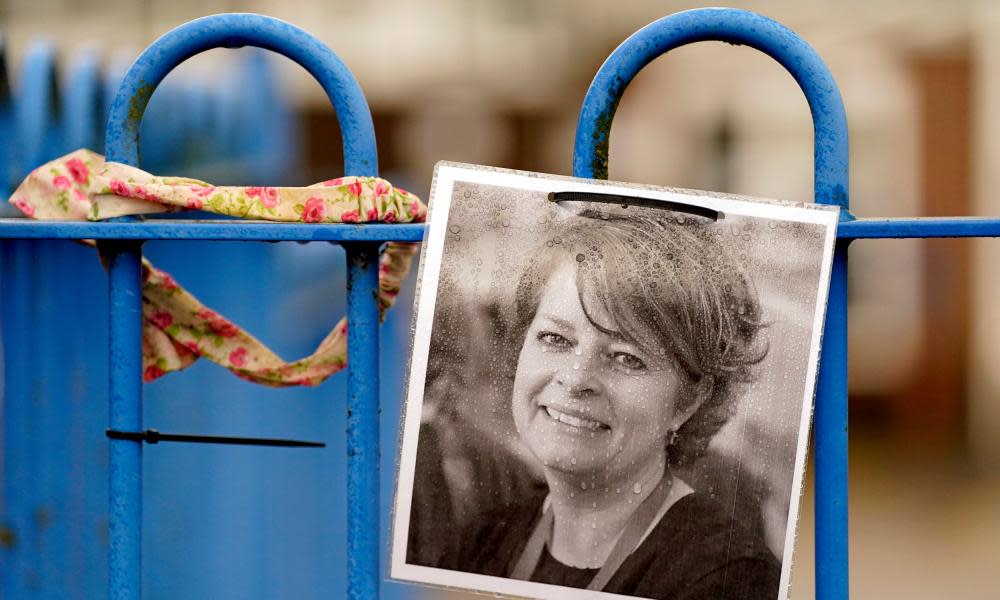Punishing Ofsted regime is driving us out of education, say school leaders

School leaders in England say they are being driven out of the profession by Ofsted’s punishing inspection regime, blaming a culture of fear and high stress for damaging their health and careers.
Senior teachers who spoke to the Guardian reported harrowing cases of “overwhelming panic” affecting their physical and mental wellbeing, including headteachers who felt humiliated or were reduced to tears by inspectors, and cases of school leaders hospitalised during Ofsted visits.
The outpouring follows revelations around the death of Ruth Perry, a Berkshire headteacher Perry’s family say she took her own life in January after a critical Ofsted inspection rated her school’s leadership as inadequate.
A headteacher in Kent summed up the feelings of many of the school leaders while awaiting inspections: “I cry most days because of the pressure of impending Ofsted. I work at least 80 hours a week. I am broken by it.”
An experienced headteacher in the West Midlands said she had stepped down last year after a bruising inspection left her feeling incompetent.
“My most recent inspection was horrendous. I was put through the mill and made to cry by the inspector as she kept asking the same questions over and over and didn’t listen to the answers,” she said.
“I have no intention whatsoever of putting myself through an Ofsted inspection again.”
Geoff Barton, the general secretary of the Association of School and College Leaders, said: “Our schools, colleges and students need a pipeline of great leaders but it is clear that Ofsted inspections are causing leaders to quit the profession and deter others from stepping up to leadership.
“If Ofsted is to achieve its stated aim of being a force for improvement it must work with leaders and not drive them out of leadership.”
State schools in England are inspected by Ofsted on a rolling basis every few years unless there are immediate concerns. But recent changes requiring schools previously rated as outstanding to be reinspected, and a backlog caused by the suspension of inspections during the pandemic years, has made the inspection timetable more erratic.
According to her family, Perry killed herself in January while waiting for the publication of an inspection report that downgraded her school from outstanding, the highest rating, to inadequate, the lowest possible rating.
The report rated the school, Caversham primary in Reading, as good in every category apart from leadership and management, which it judged inadequate because of gaps in safeguarding procedures.

Julia Waters, Perry’s sister, said on behalf of her family: “We are in no doubt that Ruth’s death was a direct result of the pressure put on her by the process and outcome of an Ofsted inspection at her school.”
Berkshire coroner’s court will hold an inquest into Perry’s death later this year.
Amanda Spielman, the chief inspector of schools in England, said the news of Perry’s death was “met with great sadness at Ofsted”. She defended the need for inspections but said there was a “legitimate” debate to be had about removing grades from inspections.
Earlier this year Labour said that if elected it would end the use of summary grades, replacing them with a report card aimed at informing parents, and establish separate annual safeguarding inspections.
Related: Labour pledges to overhaul England’s school ratings with ‘report card’
While some of the teachers and school leaders who spoke to the Guardian said they had positive experiences from Ofsted inspections, many more were negative, describing them as “gut-wrenching” events that reduced good teachers to “frightened shells”.
One teacher at a school in Bristol downgraded by Ofsted from outstanding to inadequate – similar to Perry’s school – described it as “like going through a factory of fear”.
He added: “Hardworking, committed and highly resilient staff were savagely treated in interviews, and one has been diagnosed with PTSD [post-traumatic stress disorder] such was the traumatic nature of her experience.
“The fallout is horrific. Our headteacher has left due to the pressures, senior leaders describe coming to work ‘feeling sick’ at the prospect of an Ofsted monitoring visit, parents are increasingly angry at the negative judgment which is at odds with their experience of the school.
“And saddest of all, teachers are now not running as many enriching activities for students as their time is taken up with preparing the paperwork needed to convince inspectors that the school has improved when they next visit.”
Classroom teachers were also deeply affected by the stress, with some saying it made them want to leave teaching.
A primary school teacher who has worked at the same school in Cornwall for 20 years said an impending Ofsted inspection was causing lost sleep and long working days that spread into the weekend.
“I have been under stress for so long, and it is so unsustainable that this week I sold my beautiful house and am downsizing significantly so I can afford to leave teaching in the next year or so. The detrimental impact of this on my family is huge,” she said.
“I will miss the children when I leave teaching and feel gutted – but I cannot sustain this level of stress.”
A primary school teacher in Lancashire said: “I was seven months pregnant during my last Ofsted inspection. I stayed up late to prepare as is the usual. The following day I was admitted to hospital following a TIA [transient ischaemic attack, or mini-stroke] that had been brought on by stress. I nearly lost my baby.
“The current system is deeply flawed. Of course, there is a need for accountability but it is so high stakes and punitive that it genuinely drives fear into the heart of every teacher.”
One teacher who contacted the Guardian while undergoing an Ofsted inspection this week said: “The whole thing is a farce. Prior to teaching, I worked as a private consultant in the construction industry and faced deadlines, pressure from clients and huge coordination issues between different parties, yet I have never experienced anything close to as awful as this.”
Another, a deputy headteacher, described a recent inspection after two years of preparation: “It all came crashing down due to one small piece of guidance which was not observed. We received an inadequate judgment as a result.
“Since then leadership and management have all suffered from serious mental health issues, the sense of failure is unbearable.”
The Department for Education said Ofsted had a crucial role in upholding standards and ensuring children were safe while in school.
Ofsted inspections “provide independent, up-to-date evaluations on the quality of education, safeguarding and leadership, which parents greatly rely on to give them confidence in choosing the right school for their child,” a spokesperson said.

 Yahoo News
Yahoo News 
